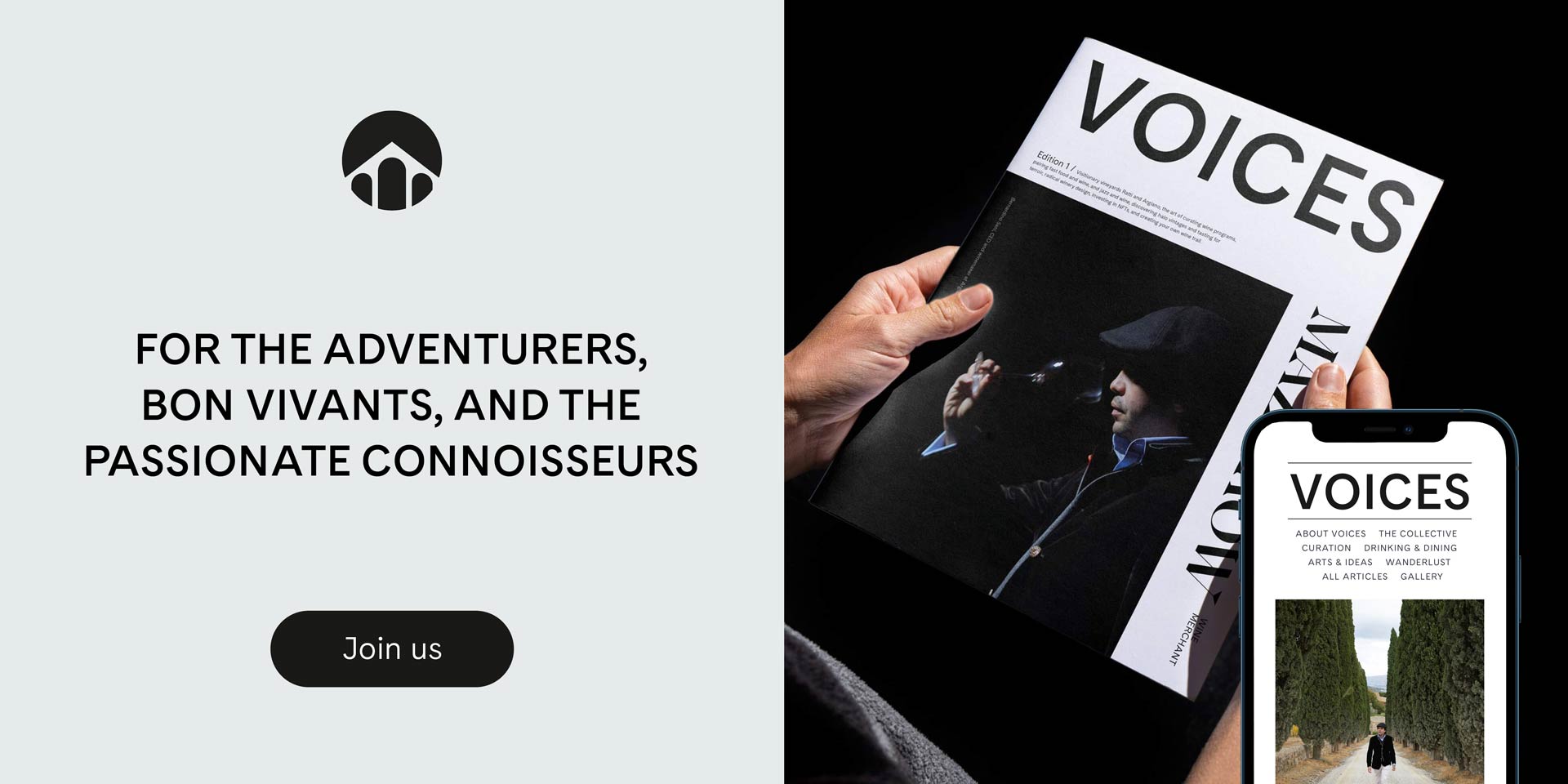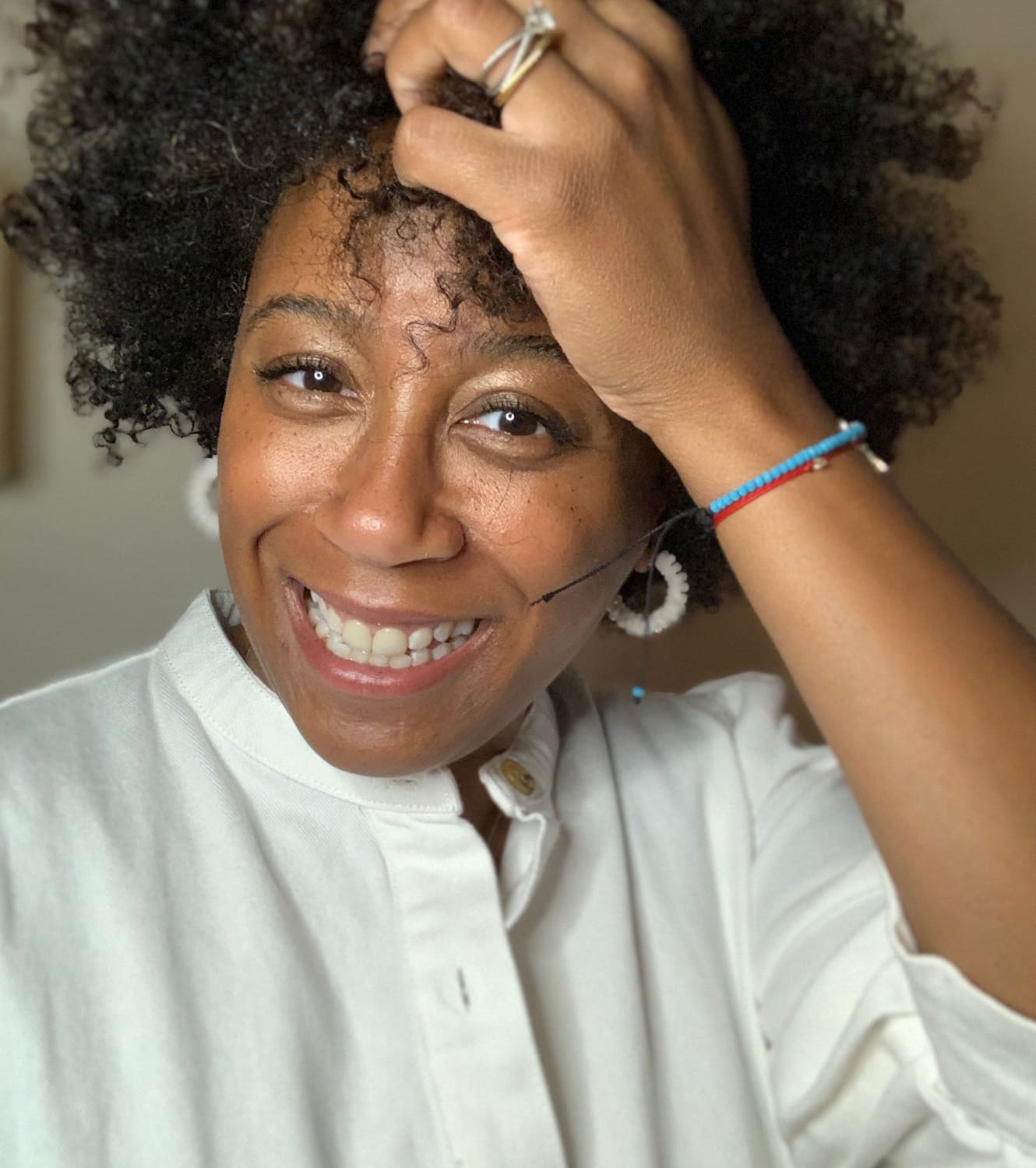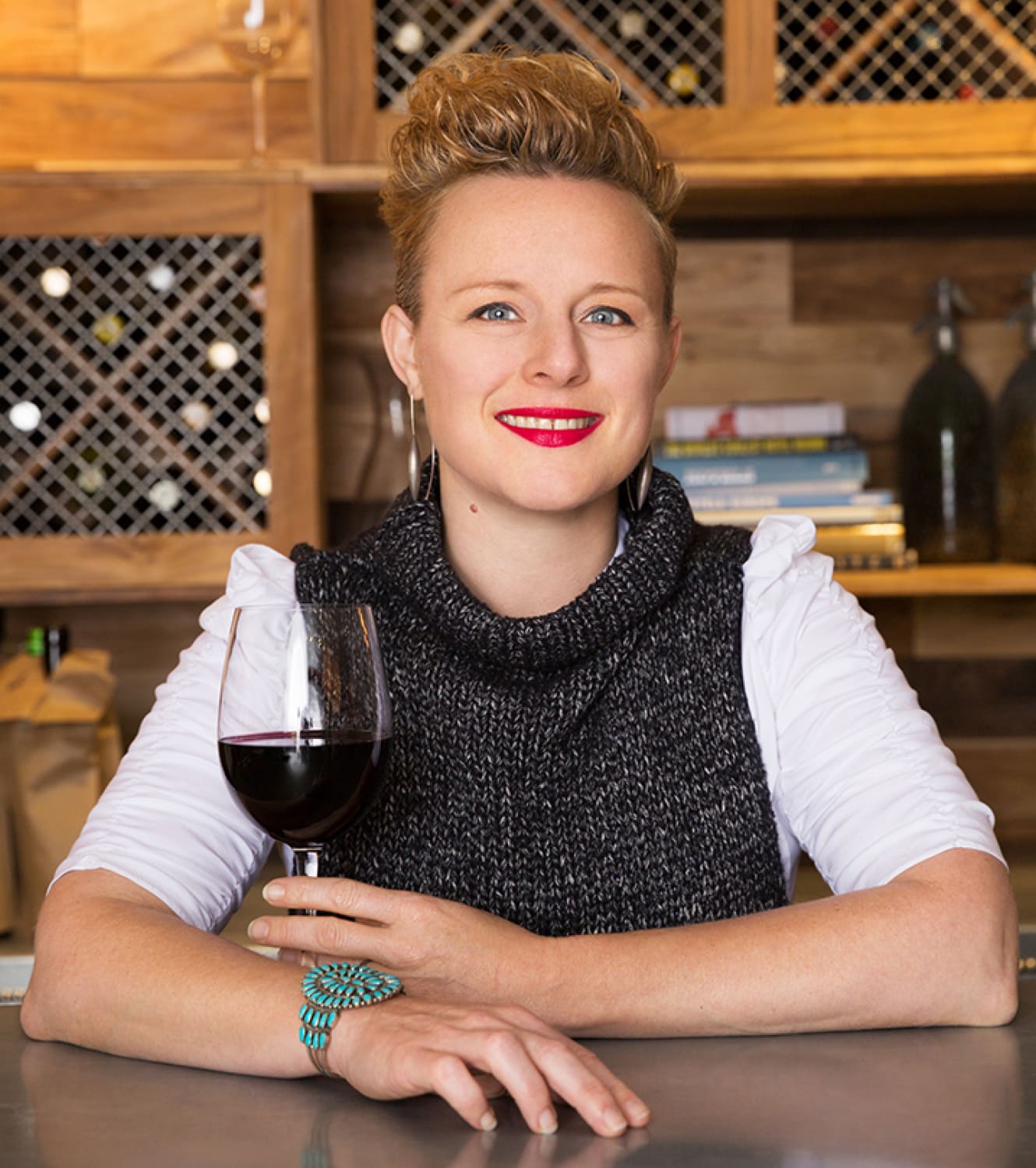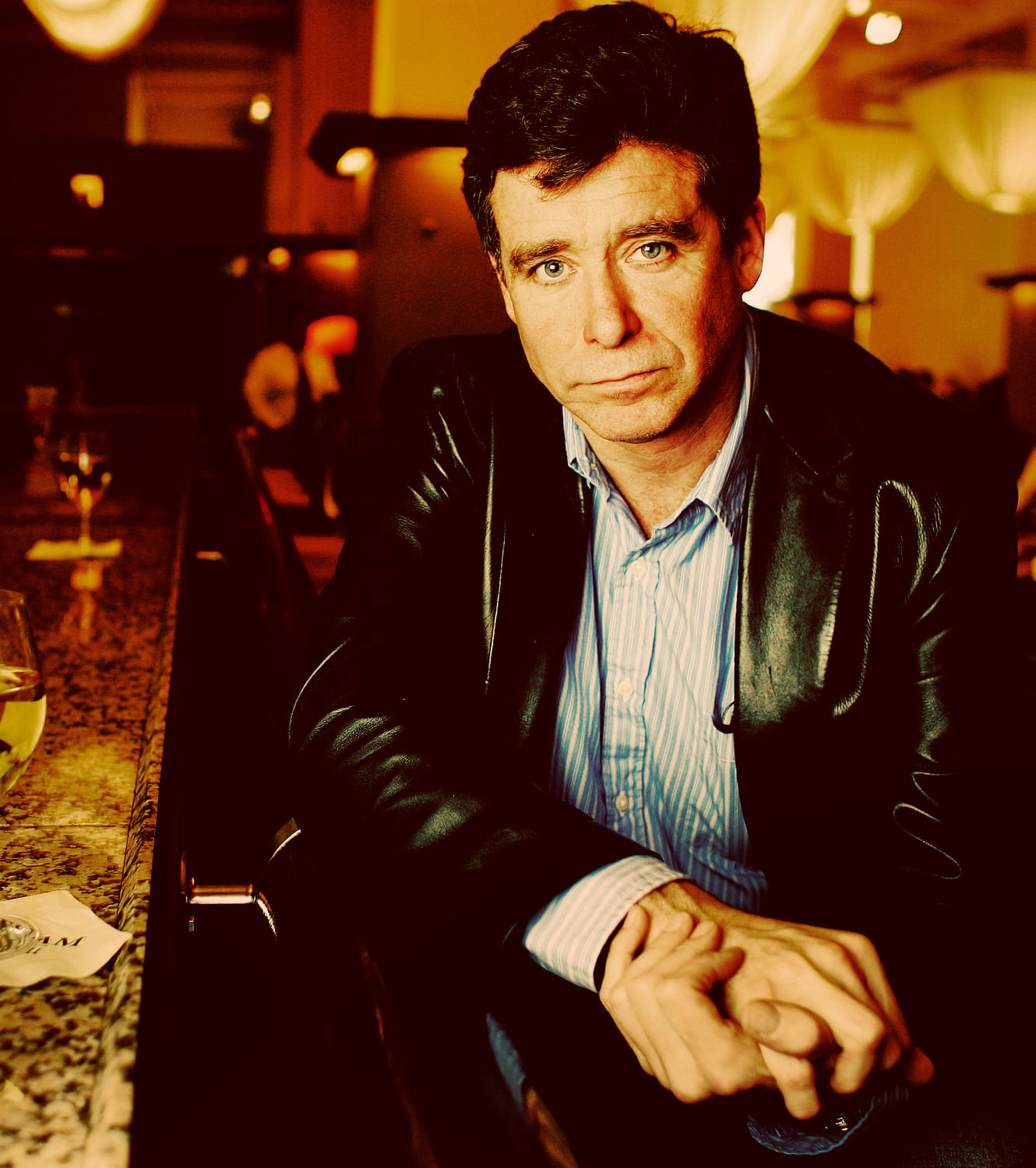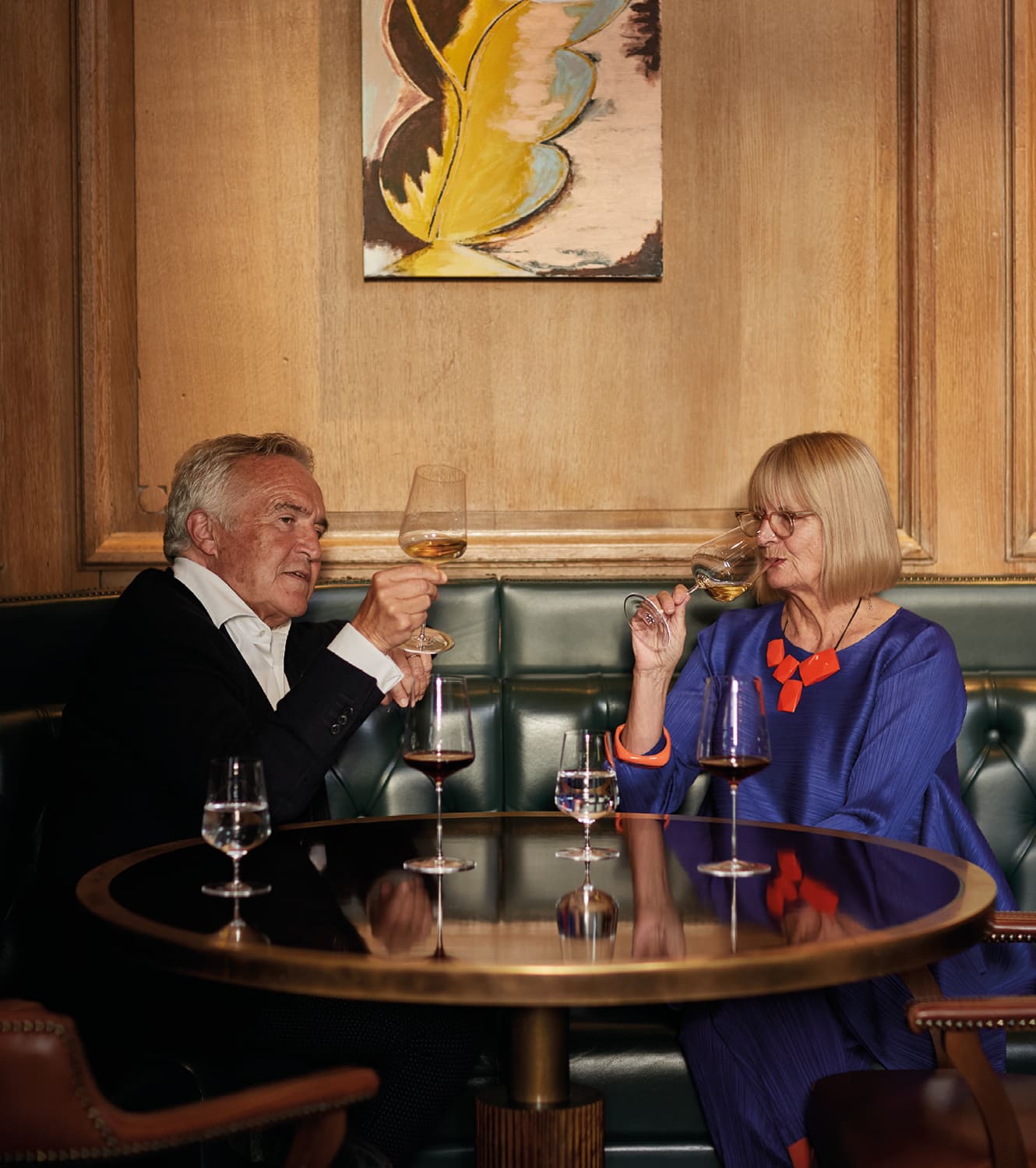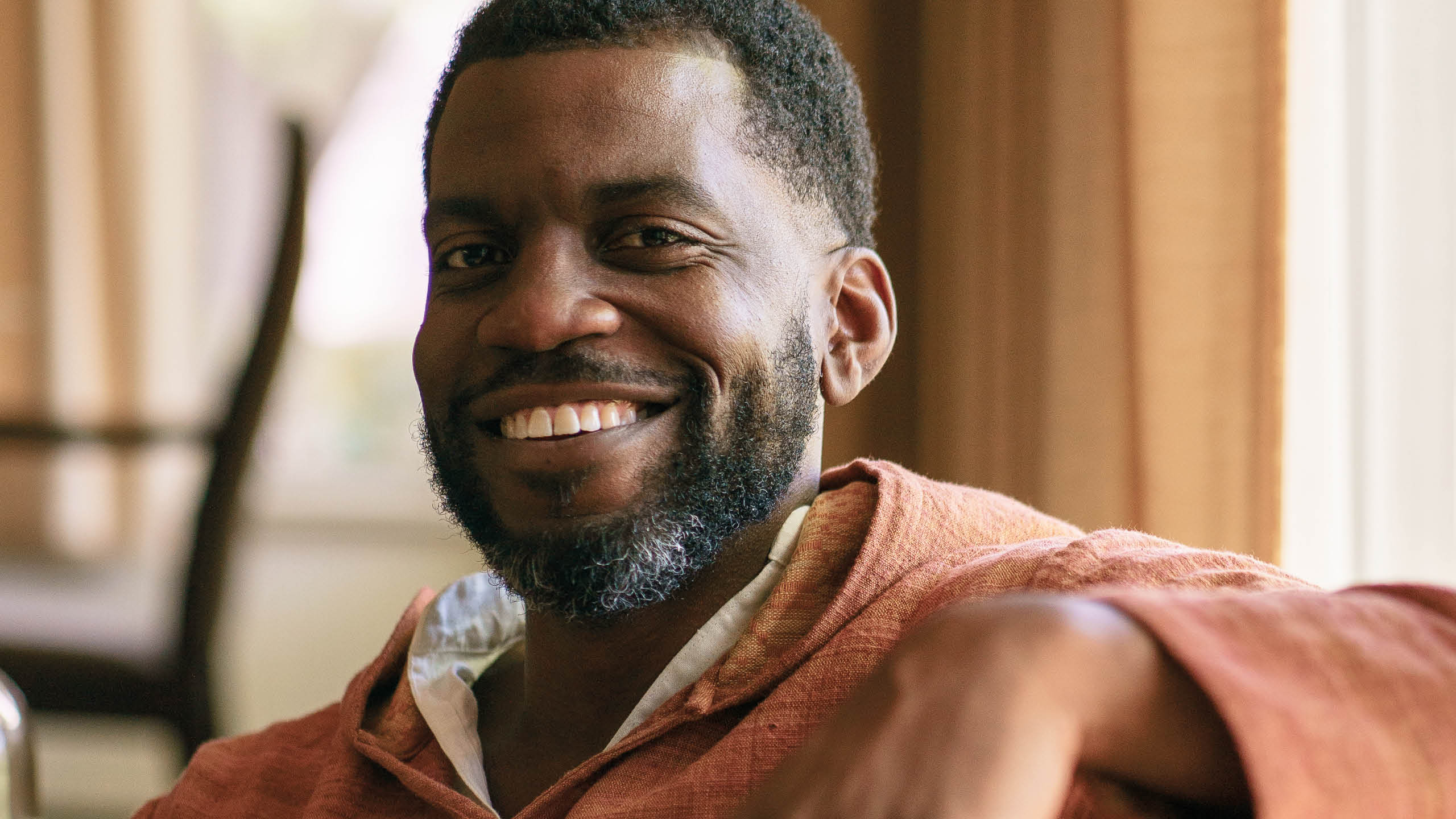
ORIGIN STORY
With High on the Hog, Stephen Satterfield looks at US history through the lens of Black food to weave richly layered critical narratives. He speaks with Jordan Mackay
If you haven’t yet watched Netflix’s High on the Hog, waste no more time. Inspired by Dr. Jessica B. Harris’ book of the same name, and tracing the roots of American cuisine back to its origins in Black culture, the series is one of the most meaningful and profound food shows ever produced. One of the reasons is its thoughtful host, Stephen Satterfield, a trained chef, sommelier and food writer whose fearless curiosity and sensitive demeanor propel the show. Satterfield takes the viewer into situations beautiful and tragic, and is always empathetic, warm, and analytical.
Satterfield started out his screen career while a sommelier at the San Francisco restaurant Nopa in the late 2000s, by chronicling culinary stories on the restaurant’s media stream. He then went on to create Whetstone magazine, a labor of love which he initially hand-sold in San Francisco, before a homemade documentary on Georgian wine ultimately brought him to the attention of Netflix’s producers. Today he can’t go out without being recognized by fans. We caught up with him to chat about his passion for wine and how it informs his approach.
“What I took away from wine as it relates to narrative is that all narratives are a function of power. All narratives are a function of hierarchy and all narratives must be viewed through those prisms to be understood. Whoever is telling the story owns the story.”
You’re a television figure now and a writer, but you used to also be a sommelier. How does that impact your life?
I had actually sworn off doing any more interviews because I have shared a lot about my journey in the press. But the part of my story that I feel still close to and protective of and flattered when people engage me on is the wine.
I am very far away from my origin story as a sommelier, except for the fact that wine is still my greatest joy and it’s the thing that brings me the most pleasure. Wine people don’t really know how formative being a sommelier was in my story. I am still in my core the dude who was popping bottles at Nopa [the San Francisco restaurant]. My trajectory from being a sommelier to television host and media entrepreneur all comes back to that restaurant, and it all comes back to my vocation as a somm.
So, what role does wine play in your life today?
I love wine still in the way that a sommelier loves it because the love of wine is so deeply personal. Yes, you can talk about it, but you can’t have a uniformly shared experience with wine. Ultimately, it is a personal experience.
And so when I’m at a restaurant, and I’m looking over the wine list and thinking deeply, it’s the most high-stakes choice of my day: what I’m gonna drink with dinner. And there’s no performance in that. It’s not part of my vocation at the moment. It’s really because I am still chasing the euphoria on a personal level of drinking exactly the right thing with what I’m eating. And because it is so personal and it’s not a thing I have to really share, it allows me to stay connected to the thing I love without it feeling like work or performance.
It was a search for origins and desire to tell stories that propelled you from sommelier to media entrepreneur. Narrative is a powerful force that, in one sense, you’re reclaiming in your Netflix series. What is narrative’s role in wine?
Narrative is something that is so pervasive that it is inescapable, and that is not unique to the wine business, but the wine business is unique in that narrative has a somewhat outsized role in the way that the product is sold. And not only in the way that the product is marketed but in the role that the marketers, the wine professionals, occupy as narrators and storytellers.
What I really took away from wine as it relates to narrative is that all narratives are a function of power. All narratives are a function of hierarchy and all narratives must be viewed through those prisms to be understood. Whoever is telling the story owns the story.
Seeing how those narratives built a lucrative industry makes you realize that the people who own the infrastructure of the global wine business are the ones who are incentivized to create narratives that are hierarchical, to make châteaux aspirational, to create language and pageantry in something that is ultimately a peasant product: you know, fermented grapes.
But by making the narrative, the product, more than fermented grapes, the folks who perpetuate that powerful narrative are the ones we can easily identify as the beneficiaries of the narratives. And so from that perspective, it actually makes it kind of easier to make sense of what we’re seeing when we’re consuming the perpetuated narratives of the wine business. And if you look at, again, in the same fashion, the folks who benefited from the wine story in the US, it tends to still be consolidated among those who are owners.
But wine also has a certain rigor that is undeniable. You’ve said that the study of wine terroir informs the philosophy of your company Whetstone Media, that wine “as an editorial angle, allows us to ask questions about the relationship between humans and food.”
Yes, I mean I’m currently writing a book called Black Terroir, and you can probably infer exactly what the book is about – my own terroir, my own origins. Although, if we move beyond pageantry and exclusionary language, which “terroir,” I believe, perpetuates, we could just use the word origin, which is why Whetstone Media always talks about origins. We just decided that origins was another way to say terroir, right?
Origins and terroir can mean the same thing, but the word terroir also implies a certain underlying complexity and even an analytical system for making sense of it.
Probably the most – not probably, certainly – the most profound thing that I learned from being a sommelier is how to think differently about how I was engaging with the world. It was a profound gift for me to learn the language of terroir because it’s given me a brand new framework to think about life and to engage with life. And it’s a powerful framework because it is a framework of understanding that is supposed to, and in fact does allow people from different backgrounds to be able to connect to each other around a common language, a common shared vocabulary, that is at its core about understanding. Because terroir at its core is a framework that helps us better understand what we’re talking about.
And it is that level of rigor that made me wish that my colleagues, mostly white men in the wine industry, could use the same process, the same rigorous evaluation in their own lives and dealing with other people, especially people from different backgrounds.
This seems a core idea in your work now, and it’s interesting how much wine still informs that.
I think it’s easier for me to adopt this perspective as the only Black sommelier I saw for large parts of my career. When everyone else is the same, it makes it hard to be a genuine original thinker. And I don’t mean that in a way to credit myself at all. I really literally mean that it’s easy to do when you are different. I recognized early on that my differentiated perspective was actually something I could use to my advantage, my professional advantage, because I knew that my peers didn’t arrive at the same conclusions that I did. And that’s driven me ever since.
Photography ©Phyllis Iller
We recommend
Taking the natural course
A former fashion executive, Whitney Pope is now Washington DC-based sommelier and founder of Whit + Wine. Here, she discusses her journey from fashion to fermenting , and why there is a natural space for natural wine
MAKING WAVES
Through her wine program at Cooper’s Hawk, and as chair of the board of the Court of Master Sommeliers, Americas, Emily Wines is making it her mission to bring diversity, inclusivity and excitement to the world of wine
BRIGHT WINES, BIG CITY
Jordan Mackay meets Jay McInerney for dinner to retrace his journey from literary sensation to leading wine columnist, sampling some fine bottles along the way
A QUESTION OF TASTE
How does the mystery of taste apply to wine? Stephen Bayley, an outspoken commentator on modern culture, art and design who has made it his life’s mission to unravel the riddle of taste, heads to 67 Pall Mall London to ask the queen critic of wine, Jancis Robinson
